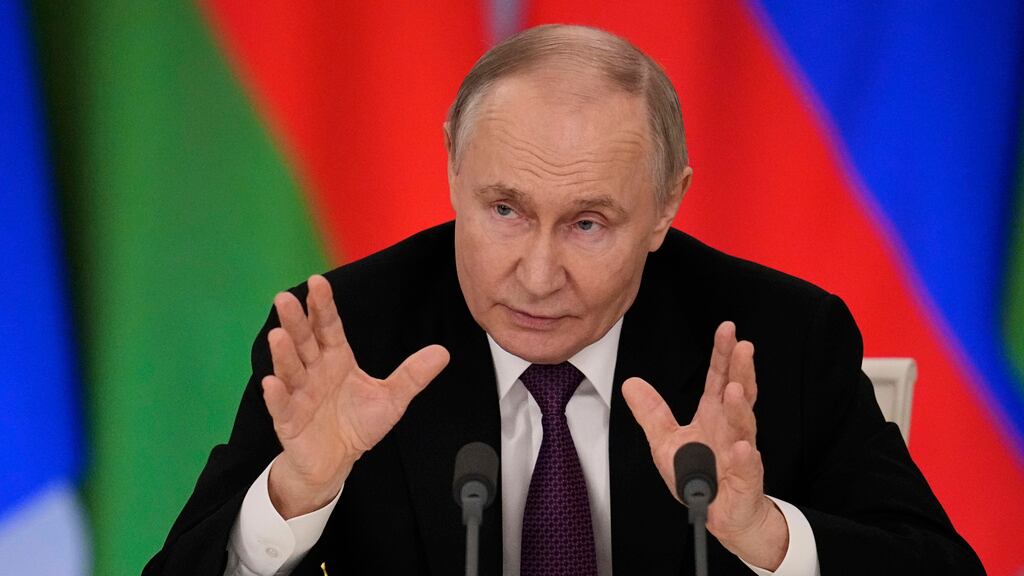Vladimir Putin announced this Monday a unilateral 72-hour ceasefire in the war in Ukraine to coincide with the Victory Day celebrations in Russia. The measure comes at a time when the United States is intensifying its diplomatic pressure to reach an agreement to end a conflict that is now three years old.
From Kiev, however, they insist on the need for a longer and immediately implemented ceasefire.
PUBLICIDAD
According to the Kremlin statement, the pause in hostilities is due to humanitarian reasons and will begin at 00:00 on May 8, ending on the night of May 10. In US time, the ceasefire would start at 5 pm ET on May 7 and end at 5 pm on May 10. This truce aims to pay tribute to the 80th anniversary of the defeat of Nazi Germany in 1945, which ended World War II in Europe, a date that Russia considers essential in its historical calendar.
What was Ukraine’s response?
Ukrainian authorities rejected Putin’s announcement, describing it as a superficial gesture in the face of the seriousness of the conflict.
The Minister of Foreign Affairs, Andrii Sybiha, expressed that his country is prepared to accept a true, reliable, and long-lasting ceasefire, not a temporary measure of just three days. Ukraine, which had already accepted a previous proposal from US President Donald Trump to establish a 30-day truce, questioned the delay in implementing the ceasefire.
For Sybiha, there is no valid reason to wait until May 8th. From her perspective, the ceasefire could start immediately if there was genuine willingness on Moscow’s part. However, it was not clear whether Ukraine would consider adhering to the Russian proposal of 72 hours.
From Moscow, the Kremlin urged Kiev to imitate its ceasefire initiative. At the same time, it warned that any Ukrainian violation would be met with strong military measures.
Attempts at a truce and their difficult fulfillment
This is not the first time that unilateral ceasefires have been announced. During the last Easter, Putin proposed a 30-hour truce, which failed to stop the clashes. Both sides accused each other of breaking the agreement.
An agreement had also been reached to suspend attacks on energy infrastructure for a month, driven by the Trump administration, but constant reports of violations led the agreement to fail.
Putin has conditioned the acceptance of a complete ceasefire so far on the end of Western arms supplies to Ukraine, as well as on the halt of Ukrainian mobilization campaigns. However, the Kremlin reaffirmed this Monday its willingness to start peace negotiations without preconditions, insisting on the need to address the root causes of the conflict.
Despite the ceasefire announcements, the attacks did not stop on the ground. In the early hours of Monday, Russian drones damaged infrastructure in the Ukrainian city of Cherkasy, disrupting gas supply to numerous homes. The Russian Ministry of Defense, on the other hand, reported the downing of 119 Ukrainian drones, mainly over the border region of Bryansk.
In an event that could further escalate international tension, Putin publicly acknowledged for the first time the participation of North Korean troops in support of Russian forces on the Ukrainian front. The Russian president thanked North Korea for sending thousands of soldiers, estimated to be several thousand fighters according to US sources.
Trump pressures Ukraine to give up Crimea
Meanwhile, the Trump administration is trying to accelerate diplomatic efforts to end the conflict, aware that time is of the essence. The U.S. Secretary of State, Marco Rubio, described the current week as “very critical” and emphasized the need to evaluate if the United States should continue to be involved in these efforts.
The military aid from the United States has been crucial in sustaining the Ukrainian defense. However, there is uncertainty about the future of that support if substantial progress is not made towards a peace agreement.
Donald Trump, for his part, has expressed skepticism regarding Putin’s intentions. In recent statements, he lamented that while talks are ongoing, Russian forces continue to launch attacks against civilian targets. Additionally, on Saturday during Pope Francis’ funeral, he briefly spoke with the President of Ukraine, Volodymyr Zelensky.
An element that could introduce even more complexity to the negotiations is the issue of Crimea. According to statements from Trump, Zelensky might be willing to cede the peninsula, illegally occupied and annexed by Russia in 2014, in exchange for a peace agreement. This statement contrasts with the official position of Kiev, which rejects any territorial concessions.
